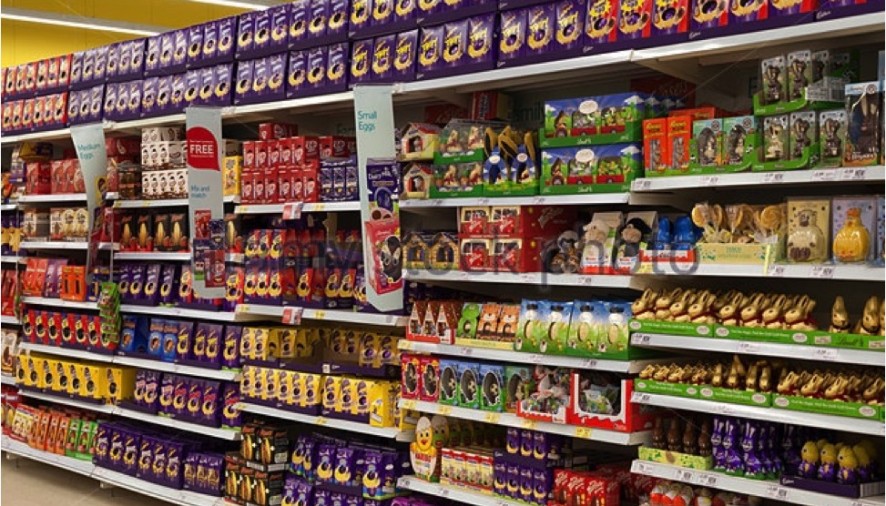Heralding the start of spring, Easter is a Christian festival and well-observed tradition across the world. The Gryphon investigates the origins of Easter and reflects upon its role in today’s society.
For many people, Easter is synonymous with an abundance of chocolate eggs, herds of Lindt gold bunnies, and hot cross buns galore. As a religious festival, Easter is deeply rooted in both Christian and Pagan traditions – and each of the aforementioned edibles symbolises important elements of these faiths. Centuries ago, a Pagan springtime festival celebrated the Anglo-Saxon goddess Eostre, whose symbol was a rabbit. In Pagan folklore, the rabbit symbolised love and fertility, both qualities associated with Easter as a time of rebirth and new beginnings. Easter eggs themselves are traditionally shaped as such to represent Jesus’s resurrection, and the stone that he cast aside from his tomb, and the custom of giving eggs dates back to ancient civilisations, such as the Egyptians, who believed that eggs were a symbol of life; the first chocolate Easter eggs appeared during the 19th century, as French and German chocolatiers led the way in creating this new Easter treat. Additionally, the pastry cross on top of a hot cross bun is meant to symbolise Jesus’s crucifixion. Whilst hot cross buns were traditionally only eaten on Good Friday, they are now a feature of supermarket bakery aisles all year round.
Easter is the most significant festival in the Christian calendar as it marks the time that Jesus made the ultimate sacrifice to save mankind from their sins. However, in today’s society, the religious significance of the festival tends to be cast aside, and an emphasis is placed instead on the commercial potential of this age-old tradition. According to ComRes, who survey practising Christians across the UK on a quarterly basis, ‘there is a clear feeling among practising Christians that the meaning of Easter is being lost’. Additionally, the Church of England’s most recent statistics indicate that 1.3 million people attended a church service on Easter Sunday in 2014, an increase on previous years. However, chocolate consumption still outweighs church going in today’s society, with Evangelical Alliance noting, ‘approximately 80 million chocolate eggs are sold annually in the UK’. Factor in the sales of mini eggs and crème-filled eggs and the figures are much higher. In order to make the most of this spending bonanza – worth £220 million annually – supermarket giants launched their Easter confectionary ranges at the start of January, before the discounted chocolate reindeers from Christmas had even left the shelves.
Although preceded by Lent – a period of fasting that begins on Ash Wednesday and lasts until Easter Sunday – Easter is predominantly associated with an over-indulgence in sugary treats. High levels of chocolate consumption, particularly amongst children, has led to rising concerns within the health industry. Health professionals are increasingly aware of the links between chocolate consumption and an array of health risks, including Type 2 diabetes, obesity, high cholesterol, and dental issues – all of which have severe health implications in the long-term. With Safefood observing that ‘2 out of 3 adults and 1 in four children are not a healthy weight’, the pressure is on for chocolate manufacturers to reduce the sugar content of their products and produce healthier treats for the nation’s chocoholics. According to the Evening Standard, it would take 35 minutes of running ‘to burn off the calories in a 250-calorie chocolate egg’. By this time of year, many people have long since forgotten their New Year’s resolutions – but with longer days and lighter mornings, perhaps it is time to make healthy Easter resolutions to counteract the weekend’s sugar frenzy.
With retailers keen to protect their corporate image and promote healthier lifestyles, it comes as no surprise that sugar-free ways of celebrating Easter are on the way up. In 2014, Playmobil created a new take on the traditional festive advent calendar, offering an Easter equivalent with ten doors, each filled with a small toy. This year, noticing a gap in the market for healthy alternatives, Tesco has teamed up with Lego, offering customers the chance to purchase a limited-edition Easter-themed Lego kit which features two Lego characters painting eggs. Perhaps the longstanding tradition of exchanging over-priced chocolate will meet its match in the form of Lego mini figures.
Rosemary Maher
Image: Stuart Black

